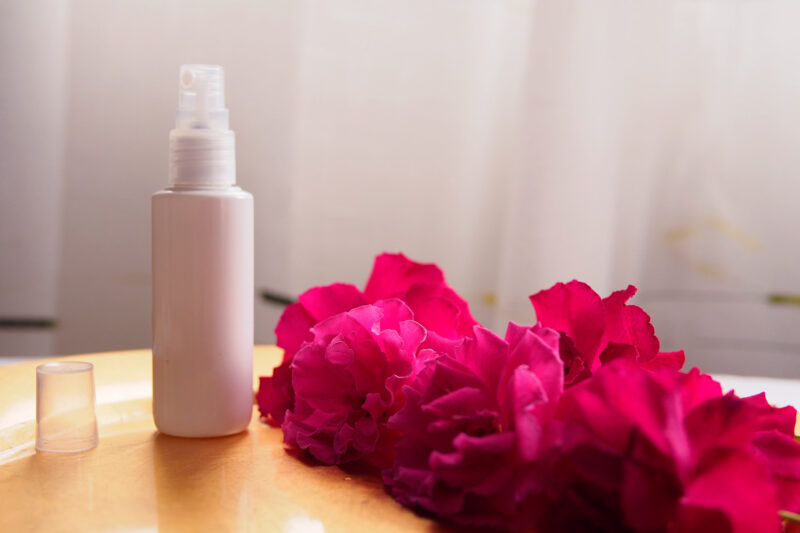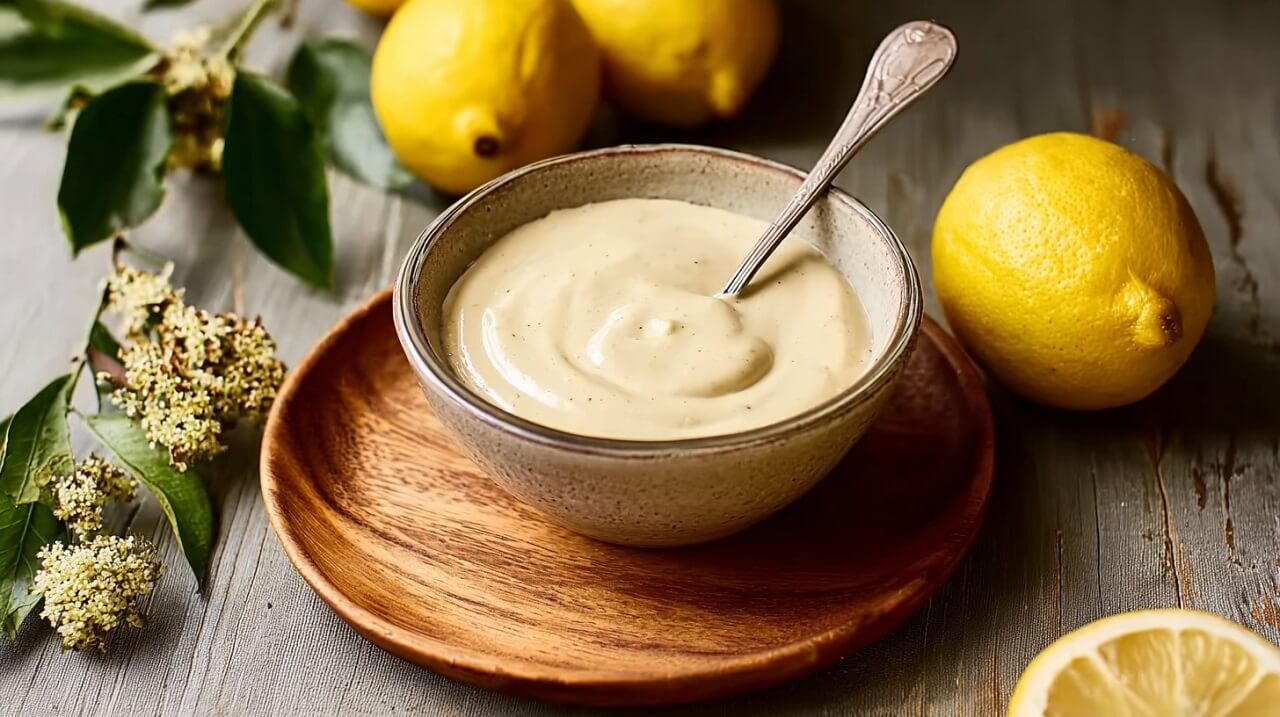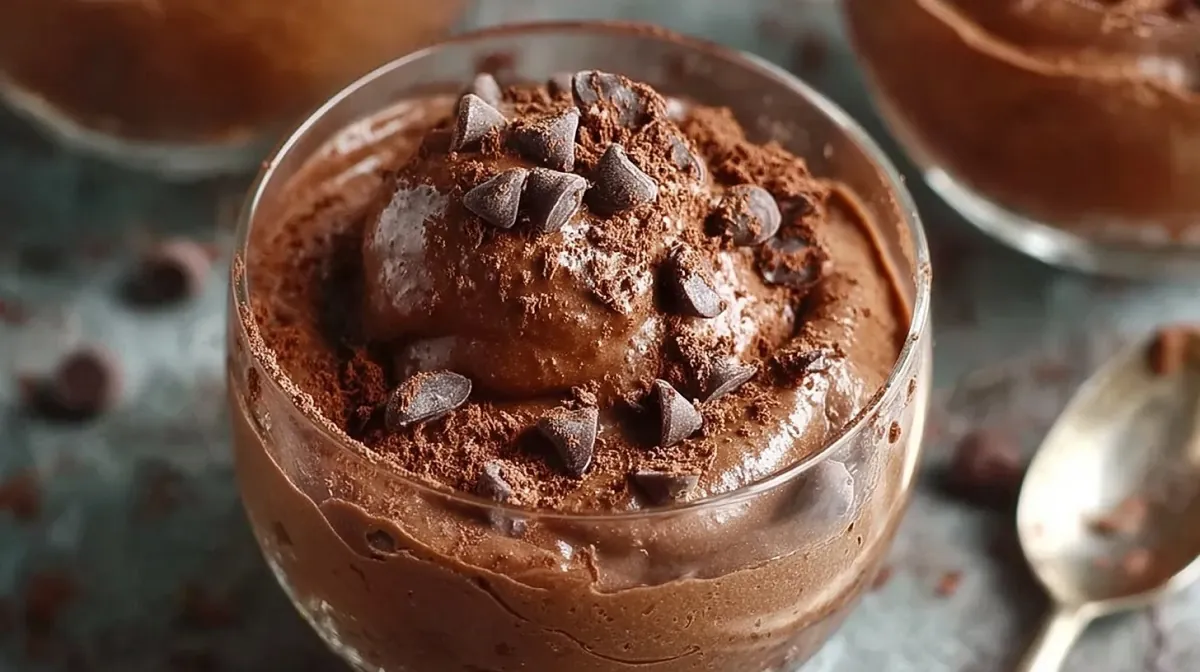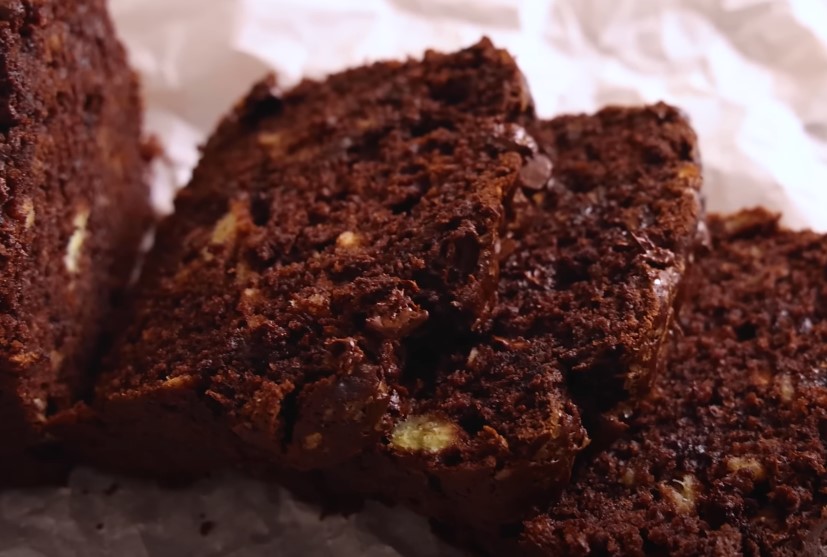Properly storing rose water is crucial for maintaining its aroma and beneficial properties. Without the right storage methods, rose water can quickly lose its effectiveness and spoil.
In this article, you’ll learn how to store rose water to keep it fresh and potent.
Table of Contents
ToggleUse Clean Containers
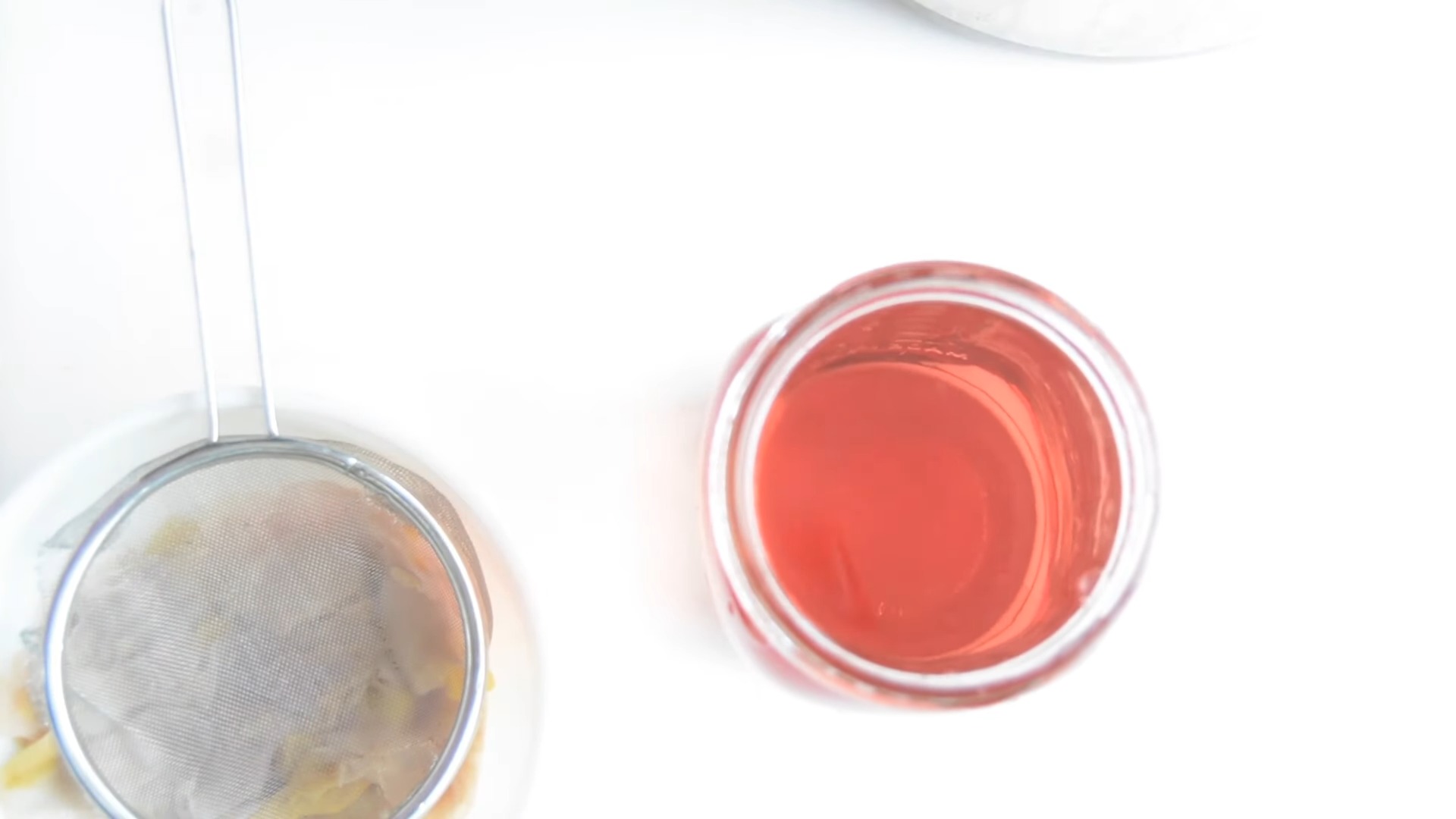
Proper storage begins with using clean, airtight containers. Glass bottles or jars are the best choices because they do not react with the rose water and do not leach any harmful chemicals into the product.
Steps for Cleaning Containers
- Wash Thoroughly: Clean the container with warm, soapy water. Make sure to rinse thoroughly to remove all soap residue.
- Sterilize: Place the container in boiling water for 10-15 minutes. This process kills any remaining bacteria or mold spores.
- Dry Completely: Allow the container to air dry on a clean towel. Ensure it is completely dry before adding the rose water to prevent mold growth.
Why It Matters?
Using clean, sterilized containers prevents contamination, which can cause the rose water to spoil faster. Contaminants like bacteria or mold can degrade the quality of the rose water and reduce its shelf life.
Avoid Sunlight

Rose water is sensitive to light, particularly UV rays, which can break down its delicate compounds and reduce its effectiveness. Storing rose water away from sunlight helps maintain its potency and fragrance.
Recommended Storage Locations
- Dark Glass Bottles: If possible, use amber or dark-colored glass bottles that can filter out harmful light.
- Cool, Dark Places: Store the rose water in a cool, dark cupboard or pantry, away from direct sunlight and heat sources.
Effects of Sunlight on Rose Water
Exposure to sunlight can cause the rose water to lose its color and fragrance. Over time, it can also lead to the growth of bacteria and other microorganisms, rendering the product unsafe for use.
Refrigeration
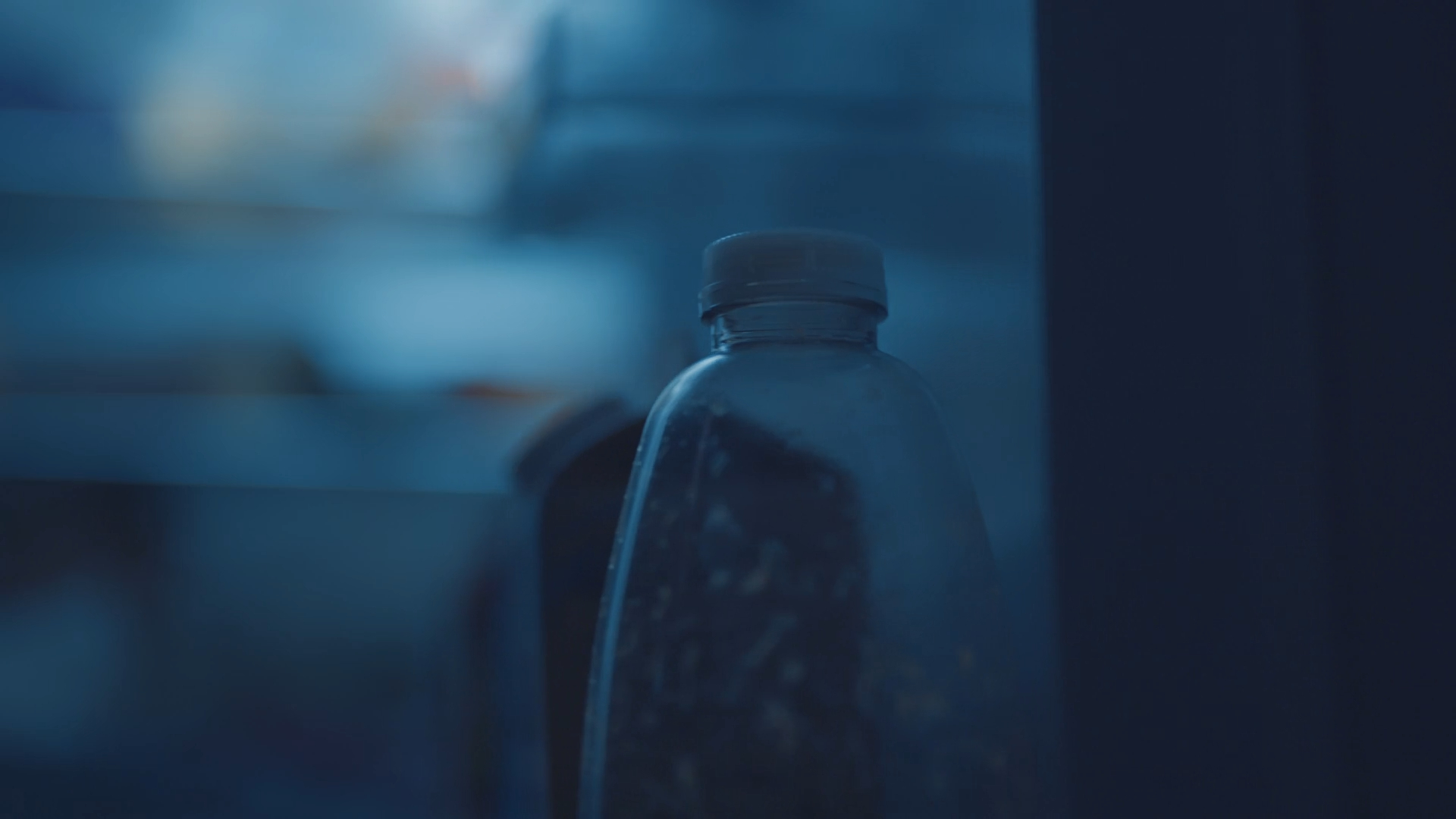
Refrigerating rose water is one of the most effective ways to extend its shelf life. The cool temperature slows down the growth of bacteria and mold, keeping the rose water fresh for a longer period.
Benefits of Refrigeration
- Extended Shelf Life: Homemade rose water can last up to a month when stored in the refrigerator.
- Maintained Freshness: Refrigeration helps preserve the fragrance and beneficial properties of rose water.
- Cooling Effect: Chilled rose water can provide a refreshing sensation when used as a facial mist or toner.
How to Refrigerate Properly?
- Seal Tightly: Ensure that the container is tightly sealed to prevent the absorption of other odors from the refrigerator.
- Consistent Temperature: Keep the refrigerator at a consistent temperature, ideally below 40°F (4°C).
Freezing
Freezing rose water can further extend its shelf life, especially if you do not plan to use it immediately. Freezing helps preserve the quality and freshness of rose water by slowing down the growth of bacteria and other microorganisms.
Benefits of Freezing:
- Long-Term Storage: Freezing can extend the shelf life of rose water for up to six months.
- Convenience: Frozen rose water can be portioned into ice cubes, making it easy to use small amounts as needed.
- Enhanced Cooling Effect: Frozen rose water ice cubes can be used for a refreshing and cooling effect on the skin during hot weather.
How to Freeze Properly:
- Ice Cube Trays: Pour the rose water into ice cube trays and freeze until solid. Once frozen, transfer the cubes to a freezer-safe bag or container to save space.
- Labeling: Label the container with the date of freezing to keep track of its freshness.
- Usage Tips: When using frozen rose water cubes, allow them to thaw slightly before application to avoid shocking the skin with extreme cold.
Adding Preservatives
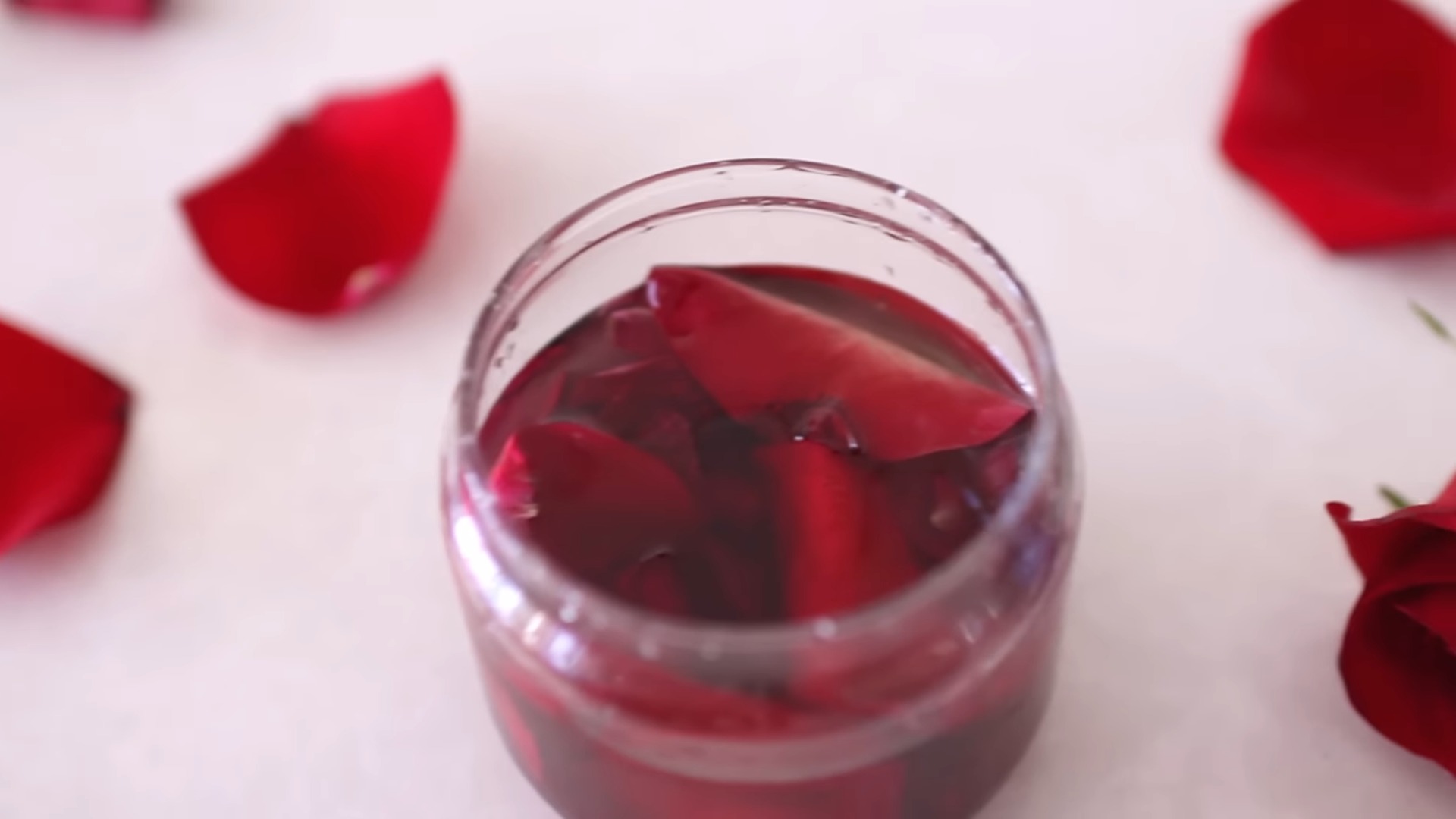
Adding natural preservatives can significantly extend the shelf life of rose water, particularly for homemade versions that lack the preservatives found in commercial products.
Recommended Natural Preservatives
- Organic Alcohol: Adding a few drops of organic alcohol can help preserve rose water by inhibiting the growth of bacteria and mold. Use a mild, skin-friendly alcohol like vodka or ethanol.
- Essential Oils: Essential oils such as lavender, tea tree, or rosemary have natural antimicrobial properties. Add a few drops to your rose water to enhance its preservation.
Benefits of Preservatives
- Extended Shelf Life: Preservatives can extend the shelf life of rose water by several weeks to months, depending on the preservative used.
- Maintained Quality: Preservatives help maintain the fragrance and beneficial properties of rose water over time.
- Enhanced Benefits: Essential oils not only preserve rose water but also add their own beneficial properties to the mix.
Check for Spoilage
Regularly checking rose water for signs of spoilage ensures that it remains safe and effective for use. Spoiled rose water can cause skin irritation and lose its beneficial properties.
Signs of Spoilage
- Change in Color: Fresh rose water should be clear or slightly pink. If it turns green, brown, or yellow, it has likely gone bad.
- Off Smell: Spoiled rose water may develop an off, sour, or wooden-like smell. If the fragrance changes, it is best to discard it.
- Cloudiness: Clear rose water that becomes cloudy indicates bacterial or mold growth.
How to Check Properly?
- Visual Inspection: Regularly inspect the color and clarity of the rose water.
- Smell Test: Check the fragrance of the rose water. Any off or unusual smell is a sign of spoilage.
- Patch Test: If in doubt, apply a small amount of rose water to your wrist and wait 24 hours. If any redness, irritation, or discomfort occurs, discard the rose water.
Proper Labeling and Dating
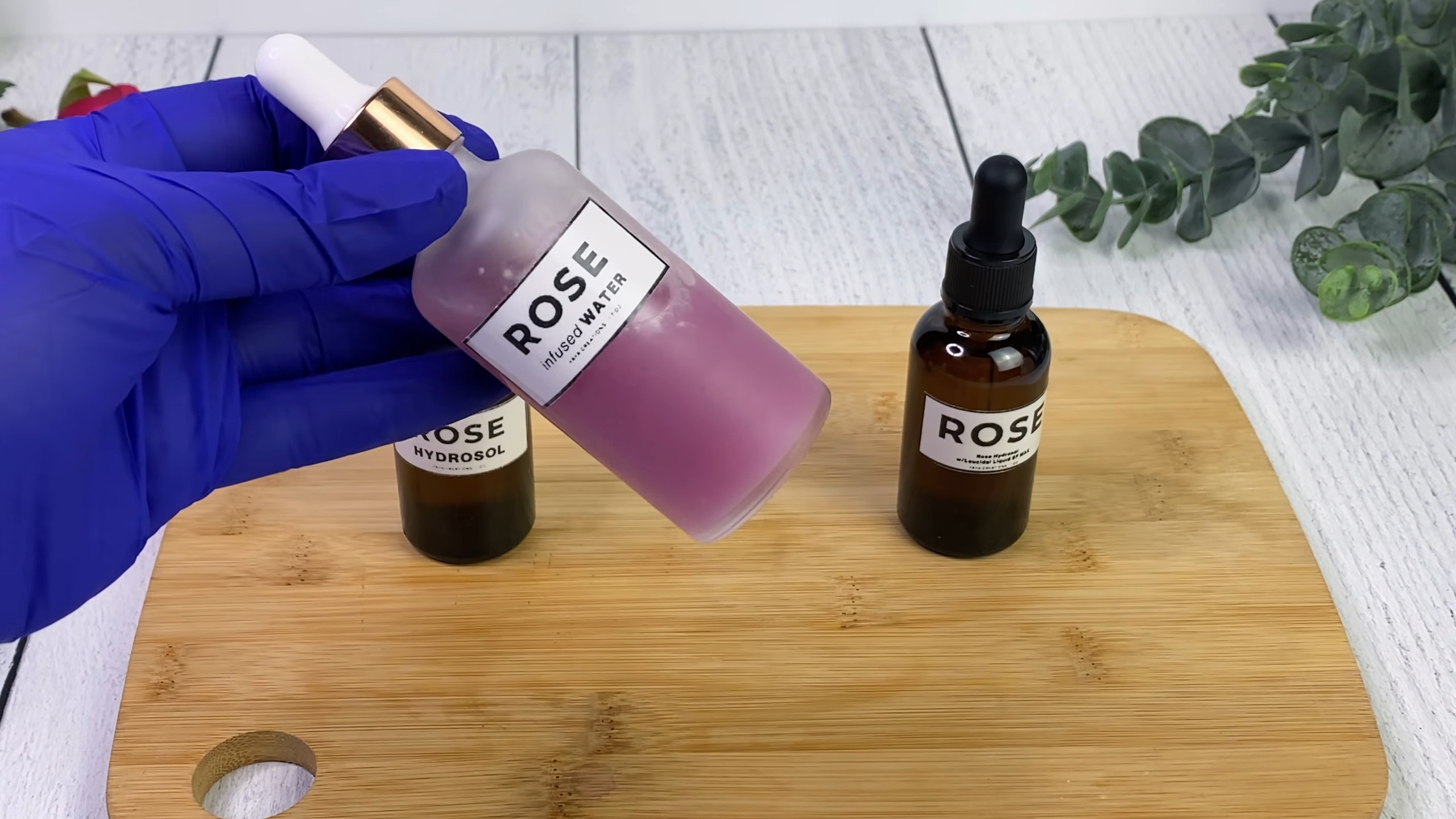
Proper labeling and dating are crucial for keeping track of the freshness of your rose water. This practice helps you monitor the shelf life and ensures you use the rose water before it spoils.
Importance of Labeling and Dating
- Track Freshness: Labeling the container with the date of preparation or purchase helps you keep track of how long the rose water has been stored.
- Prevent Confusion: Clear labeling prevents confusion between different batches of rose water, especially if you make it regularly or have multiple bottles.
- Ensure Safety: Using the oldest rose water first ensures that you do not accidentally use a spoiled batch, which can cause skin irritation or other issues.
How to Label and Date Properly
- Use Waterproof Labels: Write the date of preparation or purchase on a waterproof label to ensure it remains legible even if the container gets wet.
- Include Expiry Date: Based on the storage method (refrigeration, freezing, etc.), calculate and include the expected expiry date. For homemade rose water stored in the refrigerator, this is typically about one month from the preparation date.
- Regularly Update: If you transfer the rose water to a new container, ensure the label is updated with the new date and information.
Best Practices
- Visible Placement: Place the label in a visible spot on the container to make it easy to see and read.
- Consistent Format: Use a consistent format for all labels, such as “Prepared on: [Date], Use by: [Date],” to avoid confusion.
- Use Clear Ink: Write the information with clear, smudge-proof ink to ensure it remains readable throughout the storage period.
FAQs
How Long Does Rose Water Last Without Refrigeration?
Rose water can last for about a week at room temperature if stored in a cool, dark place. However, for optimal freshness and to prolong its shelf life, it is recommended to refrigerate it, which can extend its life to up to a month.
Can I Use Tap Water to Make Rose Water?
While you can use tap water to make rose water, it is better to use distilled or purified water. Tap water may contain impurities or minerals that can affect the quality and shelf life of the rose water.
Is It Safe to Use Rose Water on All Skin Types?
Rose water is generally safe for all skin types, including sensitive skin. However, it is always best to do a patch test on a small area of skin to ensure there are no adverse reactions, especially if you have sensitive or allergy-prone skin.
Can I Use Rose Water as a Facial Toner?
Yes, rose water is an excellent natural toner. It has astringent properties that help tighten pores, balance the skin’s pH, and provide a refreshing feel. Apply it to your face with a cotton pad after cleansing for best results.
What Are Some Other Uses of Rose Water?
Apart from skincare, rose water can be used in various ways:
- Hair Care: Use it as a hair rinse to add shine and reduce dandruff.
- Cooking: Add it to recipes for a subtle floral flavor, especially in Middle Eastern and Indian cuisines.
- Aromatherapy: Use it in a diffuser to create a calming and fragrant environment.
- Eye Care: Use it as a soothing eye wash to reduce redness and irritation.
Last Words
Storing rose water correctly is essential for preserving its quality and effectiveness. By following these guidelines, you can ensure that your rose water remains fresh and beneficial for an extended period.
Related Posts:
- Kitchen Tools and Cooking Materials You Should Avoid…
- Mastering Tomato Preservation - Easy Water Bath…
- Top 20 Gluten-Free Cereals You Need to Try
- Blueberry Custard Cake - Recipe You Must Try
- Can You Patent a Recipe? Protecting Your Culinary Creations
- Best 3-Ingredient Nutella Cookies You Must Try in 2025

